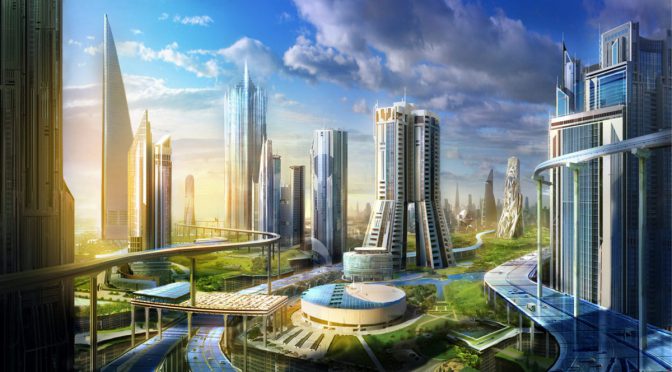One of the great staples of speculative fiction is the idea of the idyllic utopia where all the world’s ills just cease to exist. These utopias are inevitably short lived in the hands of writers because we need to make a conflict of some sort. Perhaps a sudden alien invasion brings it crashing to an end. Maybe new threats or issues become known and catch the untested society off guard. Often it turns out that the utopia is in fact a dystopia in disguise. But, on a few rare occasions the utopian society will survive on through the events in question and just continue to be perfect despite the odds.
Usually when this happens it’s actually the old favorite shorthand of “utopia” actually meaning “post-scarcity”. Writers and audiences generally have trouble identifying the differences because at first glance they’re pretty much the same. A post-scarcity society is one where problems of resources are resolved and civilization is impacted in profoundly beneficial ways as a result. There are so many facets to that to go over, one for another day to be sure, but it doesn’t quite make something automatically utopian. However, when we see a “utopia” survive against all odds it generally happens to be a very orderly post-scarcity society. This isn’t because writers don’t know the difference, it’s just that true utopias are pretty damn hard to write about in an interesting fashion.
And, when you look closely, they still aren’t what they appear….
Imperfect Futures
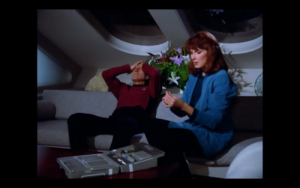
The difference between a true utopia and just a really functional post-scarcity society is that it’s not just about tangible needs being met but also emotional needs. A post-scarcity society can still be full of unrest (and we’ve seen this happening in the real world) but a utopia has a situation where people are, for the most part, content with the world they live in and have no reason to want something else. That’s where things start to fall apart.
Arthur C Clarke, famous for his notion that sufficiently advanced science could create magical effects, took a couple swings at the concept himself. The civilization humanity had created by 3001 in the final book of his Space Odyssey series was pretty utopian compared to modern standards and was a marvel to the protagonist. Their needs were met, they had achieved technological singularity, colonized the rest of the solar system within limits, and were all around just better off than we were. Their greatest concern at the time was the idea that the potentially world ending black monoliths may judge 31st century Earth by the actions of 21st century Humanity. And, speaking as someone who lives in the 21st century… fair enough.

But the fact remains, he didn’t really address much outside of what the plot required him to. He never really took a really close look at just how likely that utopia was to function without the threat of the monoliths looming large. Most writers gloss over those details or ascribe their success to things that make no sense in hindsight. HG Wells’ attempt at the genre even went so far as to say the world would be utopian so long as all of humanity adopted the way of the Samurai. Needless to say, this one was proven pretty wrong when Japan used the philosophy of Bushido to declare a crazy amount of war three and a half decades later.
But the one that happens to be cited as utopian among fans and casual observers the most has to be Star Trek’s Federation. Being a post-scarcity society with egalitarian views and a cast of characters who are generally just doing what they love most in the world, easy to see why. But one thing many people overlook is that the Federation of the 1960s wasn’t necessarily as utopian as the one everyone fondly remembers. There were still notorious criminals, including some who could potentially receive the death penalty, and lot of bickering between Spock and Bones that demonstrated that there were still some vague anti-alien sentiments in some corners of the society. And Bones, being a doctor, was well known for pointing out that he was not some god that could accomplish everything – even if he did help people cheat death a few times. They also still had a concept of money back at the time, with The Animated Series even featuring someone with great wealth.
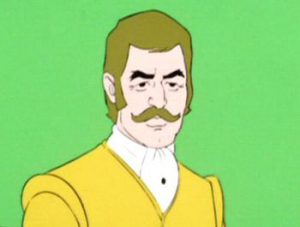
But by the time of The Next Generation in the late 80s, the Federation was being presented as this perfect little society within the Galaxy. They had ostensibly abandoned the concept of money, made a point to Q that they had completely abandoned the death penalty, made peace with the Klingons, and had seemingly abolished “normal” disease to the point that Doctor Crusher responded to Picard getting a headache in the first season as if it were a sign he might be dying. For all intents and purposes, The Federation of the first couple seasons of TNG (before they started to let it look flawed in the later seasons) was to be seen as a utopia.
Just one problem: Tasha Yar grew up on a planet with rape gangs.
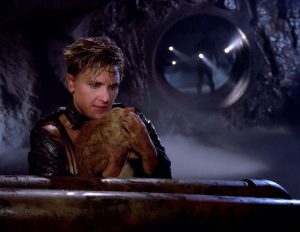
Lieutenant Natasha Yar, the head of security in the first season of TNG, was a tough woman who had grown up in a terrible place. She was human, born and raised on a failed Earth colony, and had joined Starfleet to escape the horrors of her childhood home. The world she grew up on was in a constant state of crime, war, tribal conflict and, yes, “rape gangs” who were known to prowl the streets specifically for the purpose their name suggests. The episode featuring her sister would further demonstrate that these people are tagged like animals which would enforce their electronic borders so no one could slaughter their enemies in a brazen sneak attack. They lie, cheat, steal, and kill everyone who isn’t part of their team. It was all the worst aspects of humanity in a single, concentrated state as if the Federation had cast off all of its bad vibes and sent them to this one world.
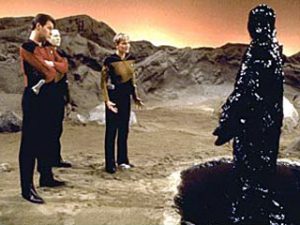
But all of this raises a huge red flag about the Federation itself: the colony was founded in 2330, by Earth, and somehow failed. If the Federation were genuinely a utopia that had perfected society to the point of meeting all needs – how does a colony fail? The entire idea of a utopia is that these people have figured out how to get along in peace, contentment, and good will because they’ve figured out the greatest problems facing mankind. Yet here stands a world, which was associated with the Federation, that just flat out failed and the Federation bailed on entirely. No attempt was made in the 5 decades between its founding and TNG to correct this monumental mess, and the whole place devolved to the point of rape gangs. Picture, for a moment, the idea that a city with some troubles like Detroit reached the point of complete anarchy and tribal warfare and America’s response is to simply cut ties to it and wish them the best.
It doesn’t compute, does it?
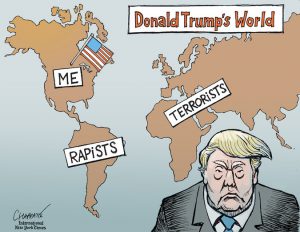
And worst of all it starts to pick at a thread that makes all concepts of utopia start to fall apart. Because even if you blame Tasha’s world on bad writing, you have to acknowledge that it’s not the only colony world established and Star Trek and many other Sci-Fi franchises still have the same trope that people start up colonies to break away from the status quo. Repeatedly people want to shrug off the society that they were born in and start from scratch. And, faced with the option of being able to go back, they’ll usually tell the original society to just leave them to their own devices so they can do their own thing. It could be blamed on lazy writing that the trope appears so often, but that doesn’t change the fact that if you’re honest with yourself it’s one of the most genuine reactions to these utopian societies you can have.
The problem with the concept of utopia, and the sort of thing that would cause Tasha’s world to happen (even in a real setting), is the fact that the second requirement of utopias is impossible without crossing into dystopian narratives. A post-scarcity society can handle all of your tangible needs, providing you food, warmth and shelter without much issue. But a utopia would have to also ensure that you’re happy with what you have, and that’s not very likely to be fixed by a technology that doesn’t reprogram your thoughts.
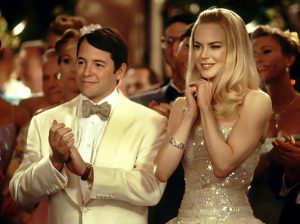
Humans crave a challenge, they thrive on strife, and when lacking in it we tend to go out of our way to find some more. Everyone wants to be comfortable, but they want to be comfortable on their own terms and sometimes that clashes wildly with those around them. As the adage goes: you can please some of the people all the time, all of the people some of the time, but you can never please all of the people all of the time. Unfortunately, having a true utopia would require you to do that – or those people leave.
And this isn’t just a theory pulled from my nether regions. Anyone who has ever perfected something will inevitably get bored with their perfected work and then move on to do something new. People frequently leave entire careers behind because they feel like they’ve “done all they can”, and I’ve known a few people who’ve stated that living in one place for too long makes them uneasy. It’s part of human nature to want to find something more challenging, to be comfortable while doing our own thing, and to chafe under societal expectations even if they may be reasonable. So, generally, even if they seem like really good places to live, few if any speculative fiction worlds actually portray genuine utopias as they’re likely impossible for humanity as we know it…
Unless, of course, this sounds ideal to you.
(I write novels. They will never feature a utopia, but I’m not against a post-scarcity society in the future. In the meantime, you can see me bitch about not having what I need on twitter from time to time.)


